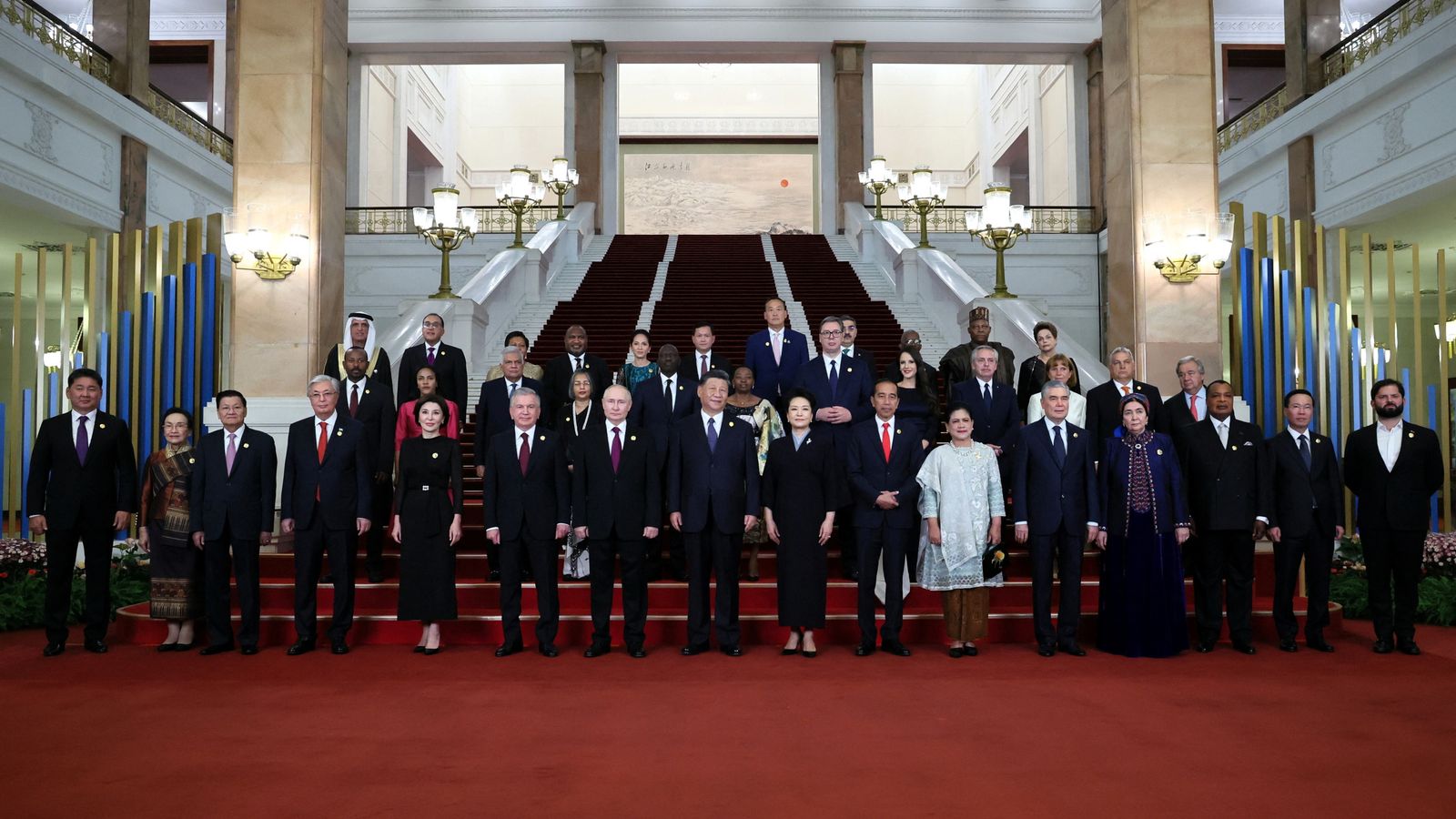The gathering in Beijing of senior leaders from over 140 countries has been months in the planning, but the timing now feels very prescient.
Ostensibly, the purpose is to celebrate 10 years of China’s flagship ‘One Belt One Road’ initiative.
It’s a programme that’s seen China invest more than $1tn to build roads, bridges, dams and railways in countries that wouldn’t otherwise have been able to afford them.
In exchange, China has extended its influence enormously both economically and politically, never mind that some more vulnerable nations have been plunged into debt they cannot repay.
This forum was always about lauding the successes of the programme and solidifying the alliances it has enabled, but it is also about China sending out a message: that it can offer a new type of global leadership and it is not just ready but willing to step into roles that might have historically been filled by the United States.
Indeed, the presence of Middle Eastern leaders in Beijing while a crisis unfolds back home offers China the perfect opportunity to enforce this pitch.
Read more:
Has China’s economy run out of steam?
China appears to censor image of athletes embracing
What is the Belt and Road initiative
China appears to censor image of athletes embracing at Asian Games after unintended Tiananmen Square massacre reference
Ding Junhui: Chinese snooker star forfeits opening frame for wearing wrong trousers at English Open
UK hands £4bn contract to BAE Systems for ‘powerful attack’ submarines as part of AUKUS pact
While it has remained incredibly tight-lipped over the precise guest list, we know that Egypt’s Prime Minster Mostafa Madbouly is in the Chinese capital, as are senior figures from the government of the UAE.
Other crucial players in the Middle East such as Lebanon, Iran and Saudi Arabia are also signed up members of the Belt and Road initiative.
The fact that some have chosen to be here at such a critical moment should not be underestimated.
Please use Chrome browser for a more accessible video player
Indeed, China has enjoyed some success in Middle Eastern diplomacy.
It was just this year that it successfully brokered a deal to re-establish relations between Iran and Saudi Arabia – no mean feat and one lauded as a huge diplomatic achievement.
But the Israel-Hamas war is built on deeper and more intractable issues, in a region where China has little history of involvement.
It’s telling that it’s been America’s secretary of state, not China’s who has toured the region in recent days meeting with stakeholders.
But nonetheless, China’s influence is significant and it’s growing, based, in large part, on extensive economic ties.
Russia’s Vladimir Putin is in Beijing too this week, a willing partner in China’s pitch of an alternative world to the one offered by the West.
Be the first to get Breaking News
Install the Sky News app for free
It is this vision that has held China back from criticising the invasion of Ukraine, it will likely also guide its response to what now unfolding in the Middle East.






